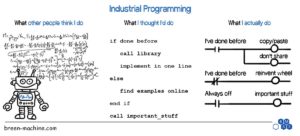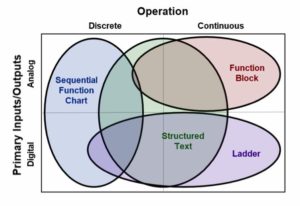
In my career before starting my own business, I had a lot of opportunities to experience the dreaded employee review. They ranged from organized and on time to chaotic and nearly forgotten, from friendly dialog to one-way box checking. I think most companies recognize that a review is necessary, usually around the time when raises are assessed, but miss a great opportunity to build/affirm a relationship with an employee and build a vision for future success.
Why Do We Review?
OK, we review employees because it’s expected. We’re going to have to address the awkward topic of pay and everyone’s used to yearly reviews, so it’s expected. That seems like a pretty weak reason to have a review. Have we forgotten why we do this? An employee is an asset to the company and needs certain things to be successful. Ultimately, this is why we review – to help an employee be successful.
What do employees need? A lot of very human things that a process can’t really capture. Employees need to feel respected, heard, appreciated, validated. They need to have a sense for where they’re going and how they fit in the organization. They need a sense of belonging. These needs can’t fully be met during a review, but the review is the time to formally and intentionally address them.
The Process
The written procedures and templates used for reviews can’t fully capture the human element, but they can support it. The process has to go way beyond just “here’s what you’re doing well and here’s what you’re doing poorly at.” Standard talking points should be developed to support the relationship and career building conversation that’s so vital between employer and employee.
For example, at Breen Machine, every review starts with, “This isn’t just a one-way review. It’s a chance for us to discuss and plan your success together.” We’re calling the shared purpose right away, setting the stage for productive conversation towards that end. The conversation also includes questions like “What tasks and projects have you enjoyed working on the most?” and “How do you see your job relating to the company’s performance?” We want to know what the employee enjoys, and whether he/she feels like a valuable part of the company. We also have conversations on goals and how to achieve them. These aren’t a management directive, but a chance for employer and employee to build the future together.
Don’t Wait
The review is the formal opportunity to do all the things we’re talking about, but it shouldn’t be the only one. If you have feedback for an employee, give it immediately. Don’t save it for 8 months until the next review. Immediate feedback let’s an employee know you’re on the same team, helps him/her make any needed corrections quickly, and gives kudos right where they’re deserved. Delayed feedback creates feelings of us vs them, is less actionable, and means a lot of detail gets forgotten.
Don’t Forget the Addaboys
Negative feedback is important – there’s no denying it – but positive reinforcement is at least as important. Unfortunately, we as managers often pay attention to the bad things a lot more strongly than the good things. This takes deliberate effort to fix. As Spencer Johnson says, “Help people reach their full potential. Catch them doing something right!”

About the Author
Jon is an engineer, entrepreneur, and teacher. His passion is creating and improving the systems that enhance human life, from automating repetitive tasks to empowering people in their careers. In his spare time, Jon enjoys engineering biological systems in his yard (gardening).









